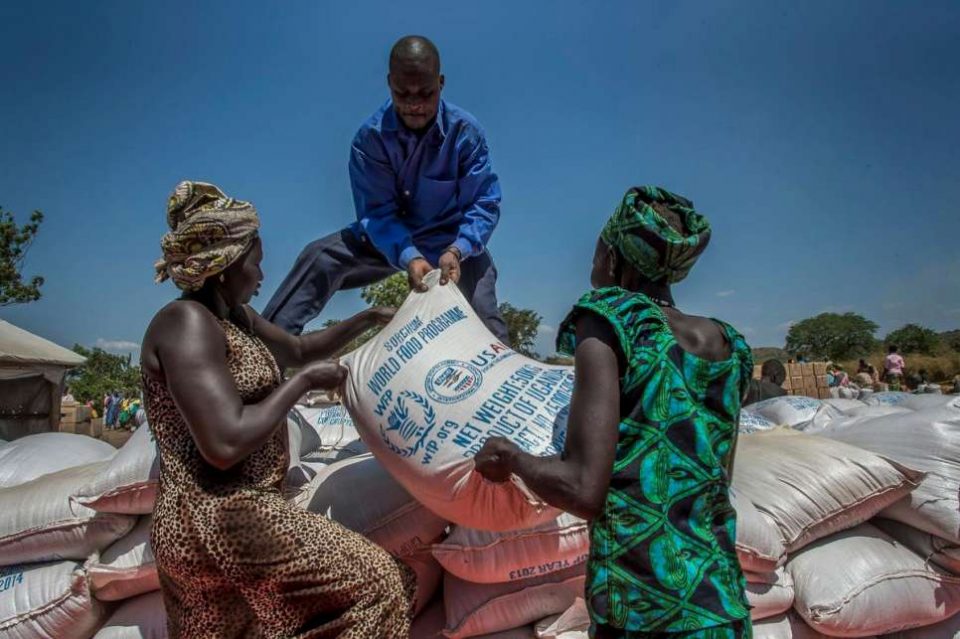The United Nations World Food Programme (WFP) Executive Board, meeting in Rome, Italy this month, has approved a five-year strategy in Palestine which prioritises food support for the most vulnerable Palestinians, thus ensuring the continuing benefit of WFP assistance.
WFP’s Country Strategic Plan (CSP) will begin in Palestine in January 2018. The Plan is in line with the Palestinian 2017 -2022 National Policy Agenda and Social Development Sector Strategy, which identified continued assistance for food insecure people as a priority to alleviate poverty. The CSP was developed in close collaboration with the Palestinian Authority, government donors and other humanitarian and development partners following an independent strategic review on Food Security and Nutrition.
The strategy aims to improve, by 2022, the dietary diversity of non-refugees, poor and severely food insecure people in Palestine (primarily in Gaza and Area C in the West Bank). Over the period, WFP will seek to support 314,000 vulnerable Palestinians across Gaza and the West Bank with food rations and electronic food vouchers.
As per the independent review, and in the face of declining resources, WFP will concentrate on addressing the greatest needs of those who are especially vulnerable.
This includes all 220,000 severely food-insecure non-refugees, as identified by the National Socio-Economic and Food Security Survey conducted this year; 59,000 of the most vulnerable moderately food-insecure non-refugees living in families headed by women; and 35,000 poor nomadic and semi-nomadic Bedouins and herders living in area C of the West Bank.
WFP’s Country Strategic Plan is also aligned with two of the 17 global Sustainable Development Goals: SDG2 – Zero Hunger, which aims to eradicate hunger by 2030, and SDG17, which promotes both public and private partnerships. WFP’s support to these goals is embedded within the 2018-22 United Nations Development Assistance Framework (UNDAF) and the first multi-year Humanitarian Response Plan (HRP) in Palestine covering the period 2018-20.
“Effective partnerships will be vital in delivering WFP’s commitments. WFP builds on its achievements and relies on its strong operational partnerships with the Palestinian Authority, the United Nations Relief Works Agency for Palestine Refugees in the Near East (UNRWA), the American INGO Global Communities and the local health NGOs Ard El Insan and Palestinian Relief Society, to meet humanitarian food needs and support national food security objectives,” said Daniela Owen, Representative and Country Director in Palestine. “Sufficient, predictable and flexible humanitarian funds from the donor community will be key success factors.”
As WFP relies entirely on voluntary contributions, Palestine’s CSP, based on projections of donor contributions, is reduced compared with the previous portfolio of assistance, when WFP was assisting almost half a million people from 2015-2017. The cutback is commensurate with the decline in donor funding over the last three years. WFP’s ability to reach its CSP targets will be contingent on receiving sufficient resources.
The CSP also focuses on supporting the national institutions involved in the design and implementation of the National Food Safety Net, and on engaging in new partnerships with the government, UN and NGO partners around the provision and further development of WFP’s voucher platform. The platform, through which WFP’s electronic card delivers assistance, has proven an efficient, flexible and cost-effective tool to address multi-sectoral needs.
Over the coming years, WFP aims to scale up cash-based transfers, including through direct cash-assistance. This will increase delivery of the most adaptable and cost-effective response for greater impact, transparency, choice, value for money and accountability both for the people served, as well as for donors to WFP.

